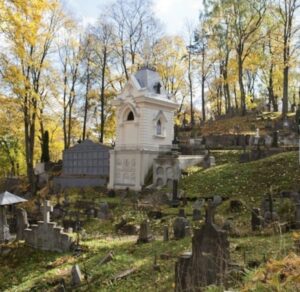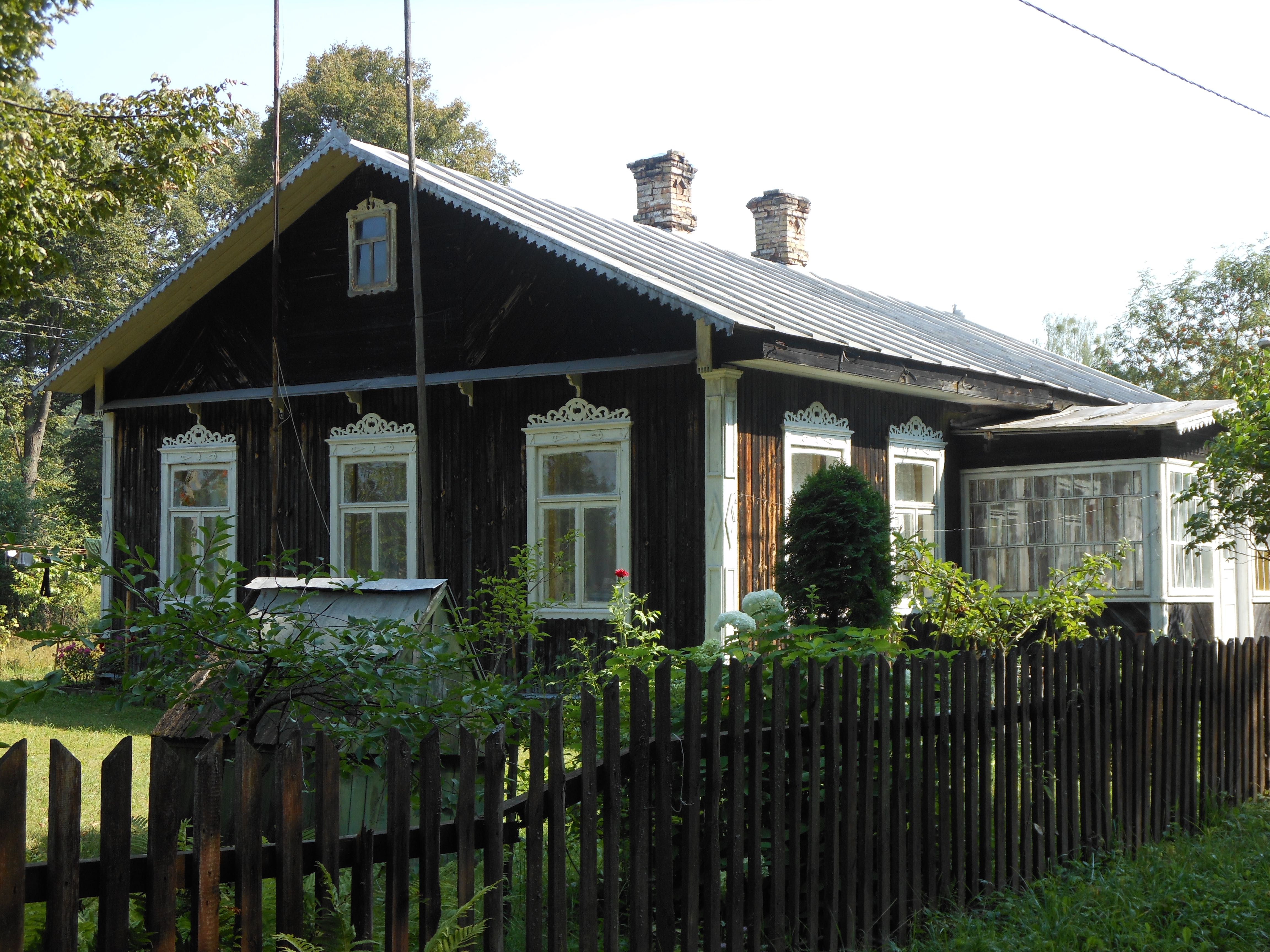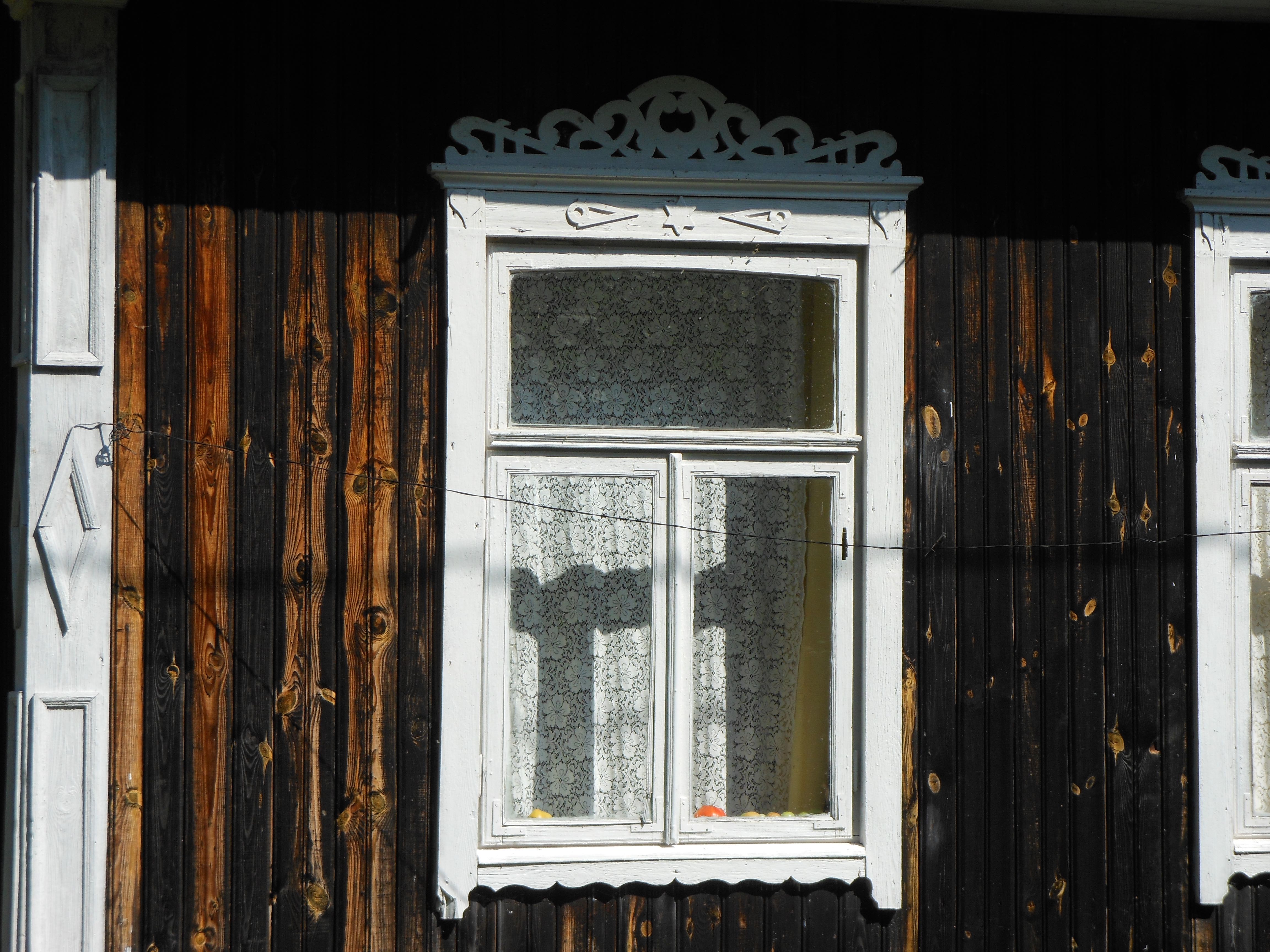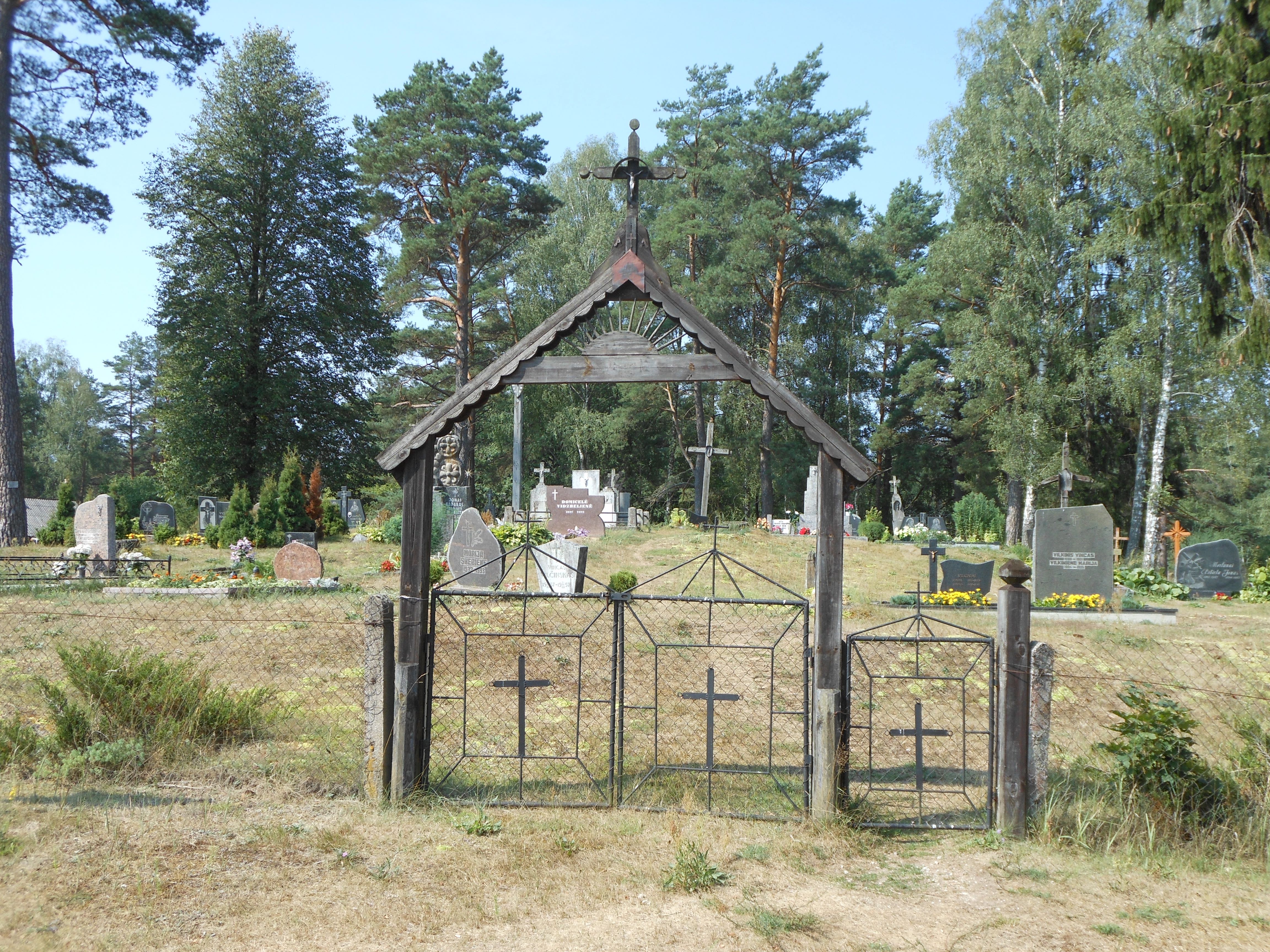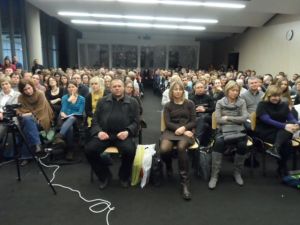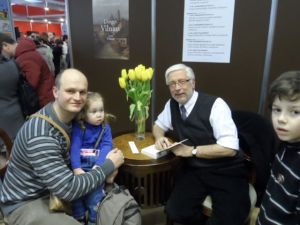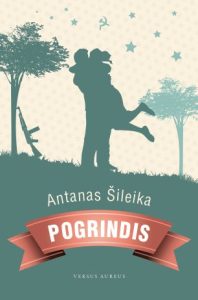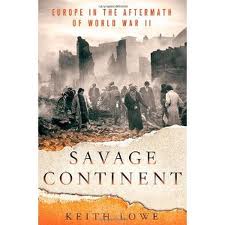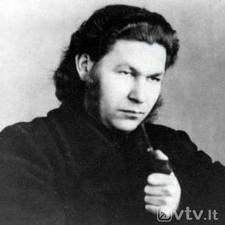Lyn Lake is far from everywhere, deep in the forest in a place with no cell phone reception and very close to the Belarus border.

Many unusual things have happened in this place, and my correspondent, Eirimas Martunass, whose father grew up here, has told me about some of them. I am drawn to this remote village because Kostas Kubilinskas, the Dr. Seuss of postwar Lithuania, taught in the elementary school while on an undercover mission to penetrate and betray the underground anti-Soviet resistance. Once he succeeded and murdered at least one man, he went on to write rhyming children’s poetry to great success.
Stories from this place are often tragic, but with a ironic twists of the kind Rod Serling might have imagined on The Twilight Zone.
I’m working on a new novel inspired by those events, with a working title of Skylark and Badger, the code names of the two protagonists..
But as I work toward the story, I discard my earlier versions of it. Here is one version, which introduces us to the rhyming assassin, and then goes back to tell a story of three boys stopping a Nazi transport train inspired by an incident that Eirimas told me. The photo below is of the house that served as a schoolhouse in Lyn Lake almost seventy years ago. The barely visible star of David suggests that Jews once lived in this house, but they were long gone from living memory well before The Holocaust.

Chapter Two – The Secret – 1947
A man with a terrible secret sat under a broad old oak tree overlooking Lyn Lake. The village lay behind him. He had thick, wavy hair and a widow’s peak over a high forehead, and he wore a very long, thin raincoat, even though it was only September and the weather was still fine. He was always conscious of his effect, even here in this godforsaken village where the locals considered him peculiar rather than artistic, as he intended. Beside him were a pipe and a half bottle of homemade vodka, namine in the local language, which he sipped on regularly throughout the late afternoon and into the evening. He had a bad relationship with alcohol, but it was unclear if he drank because of his problems, or if his drinking was just one of the many threads that would snare him.
He sat with his back against the tree and a scribbler on his knees. He wrote lines tightly packed together because there was a shortage of paper after the war, and just about everything else. But what was he writing on those pages? Poetry, he said to anyone who asked, and he occasionally amused the children in the country school where he worked as a teacher by reading them rhyming children’s stories. Those stories would make him famous one day, but at a price.
His name was Kostas Kubilinskas, and Kostas did not like teaching. He was made for better things, but he needed to survive somehow and for the time being he taught all four grades in a one-room village school.
The village might as well have been nowhere for its remoteness.
The nationality of the village and its surroundings depended on the decade. Lyn Lake lay on shifting ground, like those small floating islands that drift from one bank to another in marshy waters. Different rulers called it by different names. Within the last fifty years, it had been part of Czarist Russia, then Germany, then Poland, then Germany again, then Belarus, then Lithuania and finally now, in 1947, the Lithuanian Soviet Socialist Republic. The villagers spoke Lithuanian among themselves, and reluctantly learned whatever language the current government used to rule them.
The closest town of Marcinkonys was twelve kilometers away over a forest lane. The villagers were very far from all governments and wished to be left alone, but the governments and their armies came to them, whether the villagers liked them or not. Usually not.
The earth was terribly sandy and had a tendency to blow away before the miserable harvests of rye, buckwheat, potatoes and other vegetables could be gathered, and the cows were thin from eating poor grass in the forest meadows. The pine forests around the village were massive in this part of Europe. Most of the land was not worth farming, yet some kind of living could be made by gathering the meager harvests, picking berries or mushrooms, selling wood, and catching fish from Lyn Lake. But only if the government requisitions were not too high – if the men were not taken away for forced labour by the various passing armies – or if the men and women were not imprisoned, deported, or killed in any of the ingenious ways that fate had of bringing misfortune to the village.
Before the latest war, there had not been any Jews in the village for a long, long time, and that was another sign of the poverty of the place because the Jews were the ones who ran the stores in this part of the world. Reportedly, the one Jewish family that had tried to live in the place in the previous century left because they could not make a living by running a tavern. The village schoolhouse, just one end of a log house considered big by local standards, had carved wooden decorations along the lintels above the windows, and among them, if one looked carefully, one could see small stars of David. Perhaps the schoolhouse had once been the Jewish tavern. No one was sure any more. Many things were forgotten.
The villagers had rights to certain parts of the lake, where they set their nets for fish. Only children ever tried to fish with rods, which could bring in one fish at a time, but a net, if you were lucky, could bring in many. Lyn was the local name for the most abundant fish, otherwise called Tench in English, cousins of the homely carp. Slippery as eels, they seemed to repopulate the lake for all the intensive fishing, so there was always hope of catching more.
Chapter Three – A Side of Bacon – 1943

Three of boys crouched behind a bush on the far side of Lyn Lake, hiding from their parents, who had no patience for the indolence of their sons. Parents would force the boys to hoe gardens, or drive the geese away from planted fields, or labour at the practically endless chore of chopping wood for the winter. Their parents were merciless taskmasters, driving all the children to make themselves useful. But for the boys, it was a summer’s day that deserved devotion to the promise it held.
They were barefoot and dressed in homespun linen shirts and pants. In the midday heat, the mosquitos were too sluggish to attack, but the flies buzzed about their ears and bit them furiously. Young Vladas wished he had a long tail so he could swat them without using his hands.
“You’re a liar,” said Vladas.
“It’s true, I tell you. I read it in a book.”
“What book?”
“I don’t have it anymore.”
Books were not exactly rare in the village, but they weren’t common either, and Vladas was sure he would have seen the book if it was around. He was skeptical of his friend, Almis, who spoke so confidently that half the time you believed his lies. Squatting with them was Dovas, who said nothing, and didn’t even swat at the fly on his ear. Dovas rarely said anything of interest and half the time you didn’t know if he understood what you were saying, but he had a knack for finding good fishing spots and he would defend you in a fight, so he was not much trouble to have around. He was almost as good as a dog, but he wouldn’t fetch.
“You get me some grease, and I’ll prove it,” said Almis.
“Where am I going to get grease?”
“Butter, then.”
“It’s hot. The butter would melt.”
Almis had read that if you greased the rails of train tracks, the engine wheels would spin uselessly and the train would be halted. Vladas loved the idea of stopping a locomotive with a handful of grease. He wanted to test the proposition.
“Wait here,” said Vladas.
The boy went back to his parents’ house.
The village had not changed much in a hundred years. It was made up of three dozen wooden houses on either side of a sandy road, and the fields that belonged to those houses were scattered across a few kilometers, a field here, a meadow there. If Vladas was in luck, his parents and older brothers and sister would be out in the fields with only his grandmother in the house, watching his younger brother. He found her alone by the window, stitching a shirt as the little boy played out front in the yard.
Valdas’s grandmother wore a kerchief over her hair and the shapeless uniform of old women, a sweater even in the heat of the day and a long, dark dress and wooden clogs on her feet. She seemed very old to him. She looked at him with her pale eyes.
“Why aren’t you out with your parents?” she asked.
She expected him to be working.
“The boys told me about a lake a few kilometers away. They said you can see the fish jumping there. I want to put in a line.”
She sighed for the sake of his parents, who needed all the help they could get, but nodded. She understood boys were not like horses that could be worked all day long.
“Take something to eat,” she said, and she didn’t seem to notice when he cut a very thick piece of smoked bacon off one of the sides hanging in the larder, as well as two thick slices of black bread. He wrapped them both in a linen tea towel.
“Bring home a lot of fish,” she said, and she muttered a few words and waved her fingers at him. He wasn’t sure if she had said a prayer or cast a spell. There didn’t seem to be much difference between the two of them anyway.
He ran back to where the other two boys waited for him and showed them what he had in the towel.
“Let’s go.”
The closest train tracks ran past Marcikonys, a real town of over a thousand people, and twelve kilometers away by the forest road, but if they cut through the forest they could lose a few kilometers. They knew all the forest paths because villagers fanned out after rainfalls to gather mushrooms, which could be dried and sold, or to gather blueberries, lingonberries or cranberries. These were not exactly recreational activities because their families depended on these foods to survive, but it was the kind of work that came close to play. In the forest, they would sometimes see hare or deer or wild boar. They occasionally found beehives and smoked them to steal the honey.
Now, in the intense heat of the summer, the forest was practically silent except for the buzz of flies that followed them from home. The trees were very tall and the branches very high and there was little underbrush. They walked among these columns as though through a cathedral with a green canopy. You could see a long way into the forest until the trees seemed to move together in the distance and became a wall. The threesome walked across gray mosses that crunched under their feet and they sometimes stooped to pick a few lingonberries hanging under the green, leathery leaves on low stems. Without sugar, the lingonberries were tart, but they helped to take off the boys’ thirst because they had left without thinking of taking a bottle of water.
Then Dovas found a rivulet without being asked, and they stooped and drank some water with cupped hands, and splashed their hair and shirts to keep themselves cool. The pound of bacon was slippery and sweating and it leaked through the cloth Vladas had wrapped around it. They ate a little of the bread, which had absorbed some of the fat, and then drank more water and went on.
The Germans had ruled the country for two years, but there were not many of them on the ground except at the infirmary back at the village. Lyn Lake was so far off the beaten track that there was not much danger to the Germans, not yet, and so their wounded rested there behind a palisade until they were well enough to go back into battle. There were more Germans at Marcinkonys because the railway ran through there, and the town had once held many Jews until they were rounded up. A couple of years earlier, when the Germans and their local helpers began to shoot them, many of the Jews had escaped and wandered through these woods, some to be recaptured, some to join the Red Partisans, and a very few to be hidden away for a while.
The boys picked their way through the green and grey mosses. The grey ones crumbled underfoot in the heat of the day, but in the morning and by night they were soft. Shoes were expensive, bast slippers too fragile, and clogs unwieldy in the forest. They walked barefoot on soles hardened by rubbing up against the earth, but the boys still needed to be watchful of what they were stepping on. A sharp, upturned branch could pierce their flesh and a bad cut was dangerous for a countryside without medicine for any but soldiers in the army.
Their shirts were wet with sweat by the time they reached the track on a gentle rise outside the Marcinkonys. It was dangerous to be seen near the rail bed because Red partisans out of nearby Byelorussia sometimes blew up the rails or fired on the trains. But there weren’t enough German soldiers to guard all the lines and the boys saw no railway workers, or indeed any other suspicious adults.
The rails were hot to the touch in the afternoon sun. The bacon itself, mostly fat and very little lean, was sweating as hard as the boys, and it bled fat easily as the threesome worked along one hundred meters of rise, rubbing and rubbing the bacon on the hot rail. Then they stopped to look back. One rail now glistened more than the other, and so Almis took over from Vladas and he rubbed the other rail down to where they had begun with the first.
Not much of the bacon remained except for the thin layer of lean meat. They walked back fifty metres from the rail bed and found a place where the line was visible through a gap in the bushes. Then they sat in the shade and waited.
“When is the next train going to come?” asked Dovas.
The other two boys looked at him, surprised to hear him speak. Dovas never seemed to have a sense of time, except in a general way.
Vladas looked at Almis, who shrugged his shoulders. None of them knew about schedules. It was like fishing. The fish bit or they did not. The train would come, or it wouldn’t. They would wait and see.
Vladas used a pocketknife to scrape the metallic layer off the surface of the bacon that they had rubbed on the rails, and then he cut the meat thinly and laid it on what remained of their bread. They knew it would make them thirsty, but they were hungry and could not resist. This was how country people ate their bacon – sliced and raw off the side, or cooked if a pan was handy. But none was.
They watched and waited, and even from that distance they could see many flies had landed on the rails. Vladas hoped they would not lick away the grease before the train arrived. They watched the bare land by the tracks, and nothing happened for a long time. The sun swung right over the tracks and they glinted, bright and painful to look at. Finally they heard the chugging of the locomotive, coming from the southwest, which was very good because the train would have to make it up the rise rather than come down it. The boys rose up on their haunches, three pairs of eyes above a mass of bushes, and they waited as the chugging grew nearer. Soon the plume of smoke appeared above the tree line.
It was a German supply train, loaded with materiel for the army fighting the Reds at the Battle of Smolensk hundreds of kilometers away to the east. An armored car with a machine gun turret guarded the train. The cars were many and heavily loaded and moving slowly as the engine strained forward like a weary horse with an excessive load. And like horses’ hooves that struggled up a wet hill, the wheels of the engine did indeed begin to slip as they came upon the greased rails. The train slowed as the iron wheels turned but failed to make it up the rise.
For a moment the train was still as the wheels spun madly, and then the engineer disengaged the drive and the wheels stopped turning.
Vladas and Almis hugged each other and would have shouted for joy, but Dovas pushed them down low and put his finger to his lips. Soldiers were getting off the train, and they held their rifles at the ready. The bushes where the boys were hidden were not that far away from the soldiers. If the men chose to fan out toward the forest, the boys would be found.
But the soldiers on the train did not go far. They did not want to expose themselves on the open grass beside the track where Red partisans might be waiting to pick them off. Or even worse, the partisans might intend to blow up the train and storm it afterward. Both the boys in the bushes and the young German soldiers were afraid, and rightly so. Fear was common in that country, and the only way to fight it was to carry on, to laugh if possible when things did not turn out as badly as they might have. But it was easier to think that way after the danger was over.
The men checked under the train for charges, and found none. At an order from an unseen commander, the soldiers stepped back up on the steps of the train and they held their positions there. The engineer engaged the gears and the train went into reverse, helped by the falling grade. The engine pulled back to the place before which the rails were greased. Two soldiers came out with buckets and spades, and another pair came out with them as guards. They went a little way away from the rail bed, and dug the sand that lay under all the vegetation in this part of the country. And then this terrified work party walked out to the greased rails to sprinkle sand on them while the guards kept watch.
The victory of boys over men, of young villagers in homespun clothes over the industrial and military might of Nazi Germany brought unbearable joy to the hearts of the boys. How was it possible to celebrate in silence? It was not even Dovas, the slightly slow, otherworldly boy who betrayed them, but Almis, who had told the other boys about greasing the rails and was now vindicated.
“Hah!” he said, and not even very loudly, but as it turned out, loudly enough. Had the work party still been digging sand, the sound of their spades against the earth might have covered the noise, but they were already sprinkling sand on the rails. One of the guards looked to where the boys were hiding and pointed and then brought up his automatic and fired in their direction.
Other automatics joined in from the steps of the cars and after a moment the heavy machine gun atop the armored car joined in. Heavy firing is often called “withering”, and in this case it proved to be just that, tearing apart bushes, bringing down branches and scattering thousands of leaves in premature autumn.
The boys ran swiftly, like rabbits, zigzagging and keeping their heads low. The soldiers had not seen anything specific, so their firing was wild, but still it struck dangerously close by, throwing up sand near the boys’ feet and cracking branches right beside them. A bullet could hit them at any moment.
But none did.
Soon the firing stopped because no commander could afford to waste ammunition on a vague enemy who did not fire back. Yet the joy in the boys’ hearts had turned to fear. They continued to run as if the soldiers were right behind them. They were wet with sweat, and the mosquitos came out and descended on them as they ran. But still they flew, not looking where they put their feet, and soon they were bleeding from them. Dovas was faster than the other two and they lost sight of him, and although Vladas was faster than Almis, he ran near him because it would have been too terrible to flee through the forest alone. So many sharp things cut his feet that he did not keep track of them.
At the village they separated, and then each ran into his own house. At Vladas’s place the whole family rose in alarm as he threw himself into the room where the family sat together at the dinner table. His hair was wild and his face was scratched and bleeding and the blood ran from his feet, staining the wooden floor. Mother and father seized the boy, whose eyes were wild, but they could not get anything out of him, breathless and fearful as he was. They stripped his sweaty clothes off him and his grandmother dabbed at the scratches on his face and hands as his mother washed his feet and picked the slivers out of them, and then bound them in cloths. They sat him up in bed and gave him birch sap to drink, and toward evening he was well enough to tell his parents what had happened.
His father pulled him out of bed over the protests of his mother and grandmother, and turned him and whipped his buttocks with a switch while pouring out a short, breathless speech.
“They could have killed you. Do you understand? And you would only have gotten what you deserved. And do you know what the Germans do to villages that have attacked them? They burn them down and shoot many men and sometimes whole families. You idiots could have brought them down on us and you could have killed your mother as well as killing yourselves.”
His grandmother stayed his father’s hand.
“Look at his foot,” she said. His left was swollen and beginning to discolour. She unwrapped the foot and brought a candle nearby and searched until she found a double pin-prick.
“He’s been bitten by an adder,” she said. His mother fell on her knees to pray. His father threw down the switch and went out to find the folk doctor. The two women watched as the leg swelled up and the boy began to whimper in pain. They put cool clothes on his forehead, but he pushed them away. After a while, his father returned with water over which the folk doctor had said some words. They rubbed his leg down with this water and waited.
Almis walked about the village with his chest puffed out. He had been right and now everyone knew it. He stayed away from Vladas’s house in case his parents blamed him. Almis received many admonishments from other adults, but he was a hero among the boys his own age.
No one thought much about Dovas because the boy appeared and disappeared at will, and no one ever went looking for him in the house where his father was a drunkard and his mother an anxious, sickly wife. He had told his own father nothing, but word eventually got out. When Dovas’s father came after him with the belt, the boy fled across the village and in his haste, forgot about an unused well in a tumbledown farmstead, where he fell in and drowned before anyone discovered where he was. They only found him two days later.












